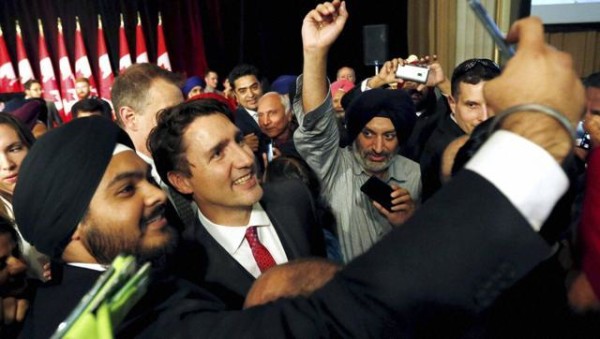Just a week into my arrival in Ottawa, I asked my interlocutor, a well known US-Canadian educationist, if Canadians were indeed as friendly as they appeared. Without batting an eyelid, she recounted an experience of shopping at a supermarket, when a watermelon she had just placed in the cart simply disappeared. Intrigued, she wondered, “When had watermelons learnt to fly?”
A G7 and G20 nation, with a resource-rich expansive landmass and a small but wealthy population, Canada will be celebrating the 150th anniversary of its foundation next year. Other than its harsh winter, Canada and Canadians have encountered very few real challenges. Geography and the US have teamed up to ensure the vast nation’s security. Bountiful nature, sustained economic growth over several decades and an effective social safety net have inculcated a sense of trust, friendly disposition and community spirit in the populace. The seeds were sown by the early immigrants who helped each other in coping with the desolate wilderness and building settlements. That generosity of spirit was evidenced in recent months when Canadians opened up their homes and wallets to help Syrian refugees. A land of immigrants, except for the million and a half descendants of the Aboriginals (First Nations), Canada is as colour-blind as it gets.
Canadians like to say that their country is not a ‘melting pot’ but a ‘salad bowl’ where disparate ethnic and linguistic groups, blend seamlessly, while continuing to retain their distinct identities and celebrate their heritage. It is no wonder then that visible minorities — a million-plus each, of the Chinese, Indian and Ukrainian diaspora, as well as, a million Muslims, three hundred thousand Jewish people and others — comprising some 20% of the country’s population, consider themselves proud Canadians. Pluralism is Canada’s strong suit and they are justifiably proud of it.
The Indian diaspora has done particularly well. Every thirtieth Canadian is now of Indian origin. Punjabi has become the third most spoken language across the nation, after English and French. Indo-Canadians head a number of multi-billion dollar companies. Their success has begun to accrue dividends back home. Prem Watsa, chairman of Fairfax Financial Holding, is so bullish on India that he has invested $1 billion in the infrastructure sector, over the last eighteen months. Nineteen of the 338 parliamentarians and four of the 31 cabinet ministers, are of Indian origin, a feat that has not been matched by any other diaspora.
And yet, despite it’s enviably idyllic existence, Canada harbours a bit of a complex about living in the shadow of the US. With an economy and population that is one-tenth of the US, Canada often finds itself struggling for attention. Thus the State visit of PM Justin Trudeau to Washington was a cause of celebration in this country. The Canadian media was quick to proclaim that Justin (Trudeau not Bieber) fever had swept the US.
An aging population poses another challenge to Canada, though not as serious as the one buffeting Europe, due to its progressive policy of admitting around 300,000 immigrants annually. By 2020, the median age in India is projected at 29 years, China 37 years, Canada 43 years and Europe 49 years. Related to this is the concern about slowing GDP growth which has halved to 1.5% per annum in the recent period. Canada is struggling to find a way forward in the face of depressed commodity prices and its less than robust innovation base. Soaring household debt is stoking middle-class angst.
All said and done, Canada is still one of the top five most-liveable countries in the world. People are relaxed and friendly. Until a lone-wolf attack in October 2014, when an armed radical entered the parliament after killing a soldier at the National War Memorial, public vehicles could enter the complex. In some respects, there is a charming innocence about the Canadians which extends, some believe, even to taking security concerns lightly.
“… When had watermelons learnt to fly?” All of a sudden, a stranger walked up to her carrying another watermelon — “The one you had picked out wasn’t the best. I thought I would choose a better one for you.”






Leave a reply